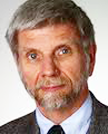Democracy
Library Commission May Protect Petition Rights
Celebration of Democracy Honors Achievements
Celebration of Democracy Honors Achievements
But notes the challenges ahead with a City
Council composed of district representatives
by Ken Martin
© The Austin Bulldog 2014
Posted Thursday, February 6, 2014 5:48pm
An extended standing ovation, completes with whoops and hollers, erupted Wednesday night when the League of Women Voters Austin Area’s Francis McIntyre announced to a crowd of some 125 people at the Green Pastures restaurant, “I present to you the first Independent Citizens Redistricting Commission in the history of Austin.”
Each of the 14 members of the Independent Citizens Redistricting Commission (ICRC) was honored with an award as McIntyre called them one-by-one to step in front of the crowd. (See list of members below.)
The League’s State of the City 2014 dinner celebrated voter approval of Austin’s new form of city governance that will be launched following the first-ever election this coming November of council members from geographic districts that were drawn by the ICRC.
The Proposition 3 ballot measure to establish 10 council districts drew 146,496 votes in the November 6, 2012, election, besting by more than 24,000 votes the alternative plan put on the ballot by council members opposed to the 10-1 plan.
 Featured speaker Steve Bickerstaff—the founder of the Bickerstaff Heath law firm and the attorney who drafted the initial plan that wound up as Proposition 3 on the ballot through the grass-roots petitioning of Austinites for Geographic Representation—called the victory “an extraordinary example of the ability of people to take control of government and an exercise in democracy.”
Featured speaker Steve Bickerstaff—the founder of the Bickerstaff Heath law firm and the attorney who drafted the initial plan that wound up as Proposition 3 on the ballot through the grass-roots petitioning of Austinites for Geographic Representation—called the victory “an extraordinary example of the ability of people to take control of government and an exercise in democracy.”
Bickerstaff praised Linda Curtis, the sparkplug campaign coordinator for Austinites for Geographic Representation; City Auditor Ken Mory, who was instrumental in implementing the application process for volunteers who wanted to serve on the ICRC; the CPAs who (during tax season) winnowed the 450 applications to form a pool of those best qualified to serve on the ICRC; and the ICRC members themselves for accomplishing the difficult task of holding together and drawing the boundaries of the 10 districts from which future council members will be elected.
“A lot of people thought it (the process) would crash and burn but the reality is, you did it,” Bickerstaff said. “The ICRC is extraordinary because the commissioners were willing to spend their own time and skills to make the process work.” He also noted that the ICRC’s mission was completed for less than $150,000.







